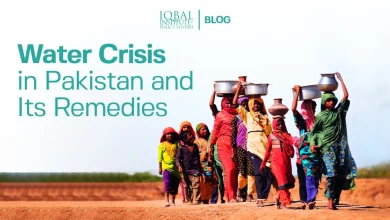Pakistan’s stunning northern mountain regions are drawing record numbers of tourists, but this tourism boom is being overshadowed by a tragic pattern of deadly road accidents on poorly maintained highways. The recent crash on the treacherous Jaglot-Skardu Highway that killed four young travelers has brought renewed attention to the urgent need for road safety reforms in Gilgit-Baltistan. This incident follows a disturbing trend – last July, four tourists died in Astore valley when their vehicle plunged into a river, and in April 2025, falling rocks killed a Thai traveler on the Skardu-Khaplu route. Rescue services report approximately 1,500 road accidents annually in Gilgit-Baltistan alone, many occurring on dangerous mountain roads with sheer drops, frequent landslides, and no protective barriers.
While Pakistan’s mountain tourism generated $16 billion in revenue in 2022, with projections to double by 2033, the infrastructure supporting this growing industry remains dangerously inadequate. The Karakoram Highway, Baltistan Highway, and other critical routes lack basic safety features, leaving both tourists and local commuters vulnerable to preventable tragedies. The situation is exacerbated by seasonal challenges including monsoon rains, winter snowfall, and spring thaws that make these already precarious roads even more hazardous.
Safety experts and local communities are demanding immediate action, proposing concrete measures that could save countless lives. These include implementing seasonal traffic controls that would restrict heavy vehicles during dangerous weather conditions, conducting mandatory safety audits of mountain roads before each tourist season, establishing emergency rescue stations along high-risk routes through public-private partnerships, and introducing stricter vehicle and driver regulations specifically for mountain travel. The proposed solutions are practical and modeled on safety systems used in other mountainous regions worldwide.
Despite repeated tragedies and clear solutions, government response has been woefully inadequate. The National Highway Authority’s recent proposal to install “slide shelters” on the Jaglot-Skardu road came only after yet another fatal accident, raising questions about why preventive measures aren’t implemented proactively. This pattern of reactive rather than proactive policymaking has cost numerous lives and threatens to undermine Pakistan’s growing tourism industry.
Behind the sobering statistics are real human tragedies – families shattered by preventable losses. The deaths of Wasif, Umar, Salman, and Usman in the recent Skardu crash, like so many others before them, highlight the urgent need for systemic change. Their stories, and those of other victims, must serve as a catalyst for meaningful reform rather than fading into obscurity after the initial headlines.
The solution requires coordinated action from multiple stakeholders – federal and local governments must allocate adequate funding for road safety improvements, tourism operators need to prioritize safety in their offerings, and travelers themselves should demand better conditions. With the right combination of political will, strategic investment, and public pressure, Pakistan can transform its dangerous mountain roads into safe, sustainable routes that protect both lives and the country’s valuable tourism industry. The time for action is now, before more lives are lost to preventable accidents on these breathtaking but deadly mountain roads.
Also read: PIA resumes Dubai-Skardu flights to boost Pakistan’s tourism







